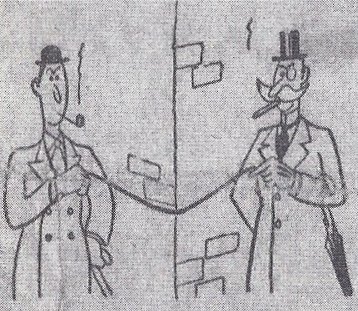Unlikely names of actual court cases, compiled by Rodney Jones and Gerald Uelmen in Supreme Folly (1990):
- Sand v. Beach, 200 N.E. 821 (N.Y. 1936)
- Plough v. Fields, 422 F. 2d 824 (9th Cir. 1970)
- In re Worms, 252 Cal. App. 2d 130 (1967)
- People v. Slutts, 259 Cal. 2d 886 (1968)
- People v. Bimbo, 145 N.E. 651 (1924)
- People v. Takencareof, 174 Cal. Rptr. 112 (1981)
- State v. Gopher, 633 P. 2d 1195 (Montana 1981)
- People v. Justice, 167 Cal. App. 2d 616 (1959)
- Coffin v. Bloodworth, 28 Cal. App. 2d 522 (1938)
- Pain v. Municipal Court, 237 Cal. App. 2d 151 (1968)
- Anger v. Municipal Court, 237 Cal. App. 2d 69 (1965)
- Easter Seal Society for Crippled Children v. Playboy Enterprises (6th Cir. 1987) 815 F. 2d 323
- King v. The Queen, 1 A.C. 304 (1969)
- Silver v. Gold, 259 Cal. Rptr. 185 (1989)



